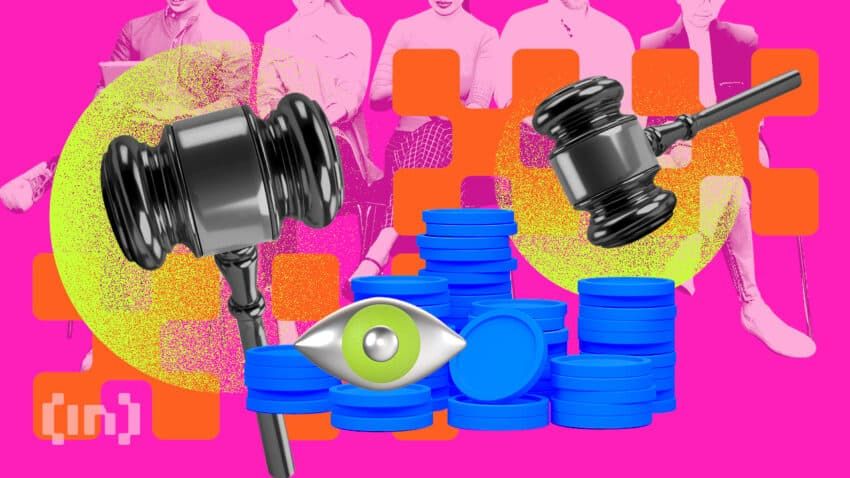Countries outside of the U.S. are moving to clarify the regulatory status of different crypto assets.
With the U.S. crypto sector rocked by the Securities and Exchange Commission’s (SEC) lawsuits against Binance and Coinbase, other countries are moving to avoid a similar situation with clear-cut crypto regulations.
U.S. Crypto Sector in Limbo While SEC Lawsuits Unfold
Criticism of the SEC’s recent actions rests on the fact that should it win its lawsuits, the agency will have massively curtailed Americans’ ability to trade cryptocurrencies.
Already, major exchanges are on the back foot. Binance has suspended USD deposits and crypto-to-dollar swaps. And the firm narrowly avoided a total shutdown by agreeing on a deal to avoid having its assets frozen.
Meanwhile, the likes of Robinhood, eToro, and Bakkt have swiftly delisted tokens named in the SEC lawsuits. And until a degree of regulatory clarity is achieved, it seems likely that such restrictions will remain in place.
Registering a securities offering with the SEC is an onerous undertaking for any business. And one that few crypto exchanges are prepared to undertake. Such a requirement would spell the end of the crypto trading market as we know it. And it could force many players to retreat from the U.S. market.
And as Coinbase CEO Brian Armstrong noted in an interview recently, the SEC has offered no pathway for his company or any other crypto exchange via which they could receive the necessary permission to operate.
By classifying the majority of cryptocurrencies as securities but offering no way for exchanges to register, the SEC threatens to impose a de facto ban on crypto trading in the U.S.
Indonesian Regulator Approves List of Tradeable Cryptocurrencies
Earlier this month, the Commodity Futures Trading Regulatory Authority of Indonesia published a list of 501 cryptocurrencies that it has deemed legal to trade. Significantly, all tokens that the SEC has argued are securities are included in the list.
The regulator’s move to enshrine the legality of crypto trading boosts Indonesia’s credentials as a crypto-friendly nation. It also offers traders some assurance that they won’t fall victim to market-disrupting actions like the SEC’s recent lawsuits.
Read More: Top 11 Crypto Communities To Join in 2023
Brazil Passes Law Making Central Bank Crypto Regulator
One of the challenges faced in the U.S. is that lawmakers never designated a specific agency to regulate the crypto space. As a result, for years, the SEC and the Commodity Future Trading Commission (CFTC) have butted heads over whose jurisdiction crypto trading falls under.
This week, the Brazilian government took a major step to prevent such inter-agency disputes. President Lula has now signed legislation that authorizes the Central Bank of Brazil to supervise virtual asset service providers.
Under the new framework, qualifying tokens will still fall under the purview of the securities regulator (CVM). But crucially, it will be up to the central bank to deem which tokens count as securities.
CVM Crypto Regulations Lay The Groundwork For the Securities Token Market
The delineation of regulatory territories is now enshrined in Brazilian law. And the country is now on its way to becoming a leader in the field of crypto securities.
Through its regulatory sandbox, the CVM has already approved three projects enabling tokenized securities to be issued and traded. Going forward, the body is developing a regulatory framework based on the experiences of its sandbox. This will set the stage for Brazil to become one of the first countries to establish a fully regulated market for crypto securities.
Compare this to the U.S., where the SEC’s stance has not only hamstrung crypto trading but also stalled innovation in the development of genuine crypto securities.
In his recent interview, Armstrong stated that Coinbase does not contest the classification of many crypto assets as securities. In fact, he said that securities offerings are an area where crypto regulation could help update the financial system.
But once again, the absence of any clear path for registering crypto securities only serves to hold the technology back. Meanwhile, countries like Brazil are moving ahead to support its development.
More From BeInCrypto:
Disclaimer
Following the Trust Project guidelines, this feature article presents opinions and perspectives from industry experts or individuals. BeInCrypto is dedicated to transparent reporting, but the views expressed in this article do not necessarily reflect those of BeInCrypto or its staff. Readers should verify information independently and consult with a professional before making decisions based on this content. Please note that our Terms and Conditions, Privacy Policy, and Disclaimers have been updated.


